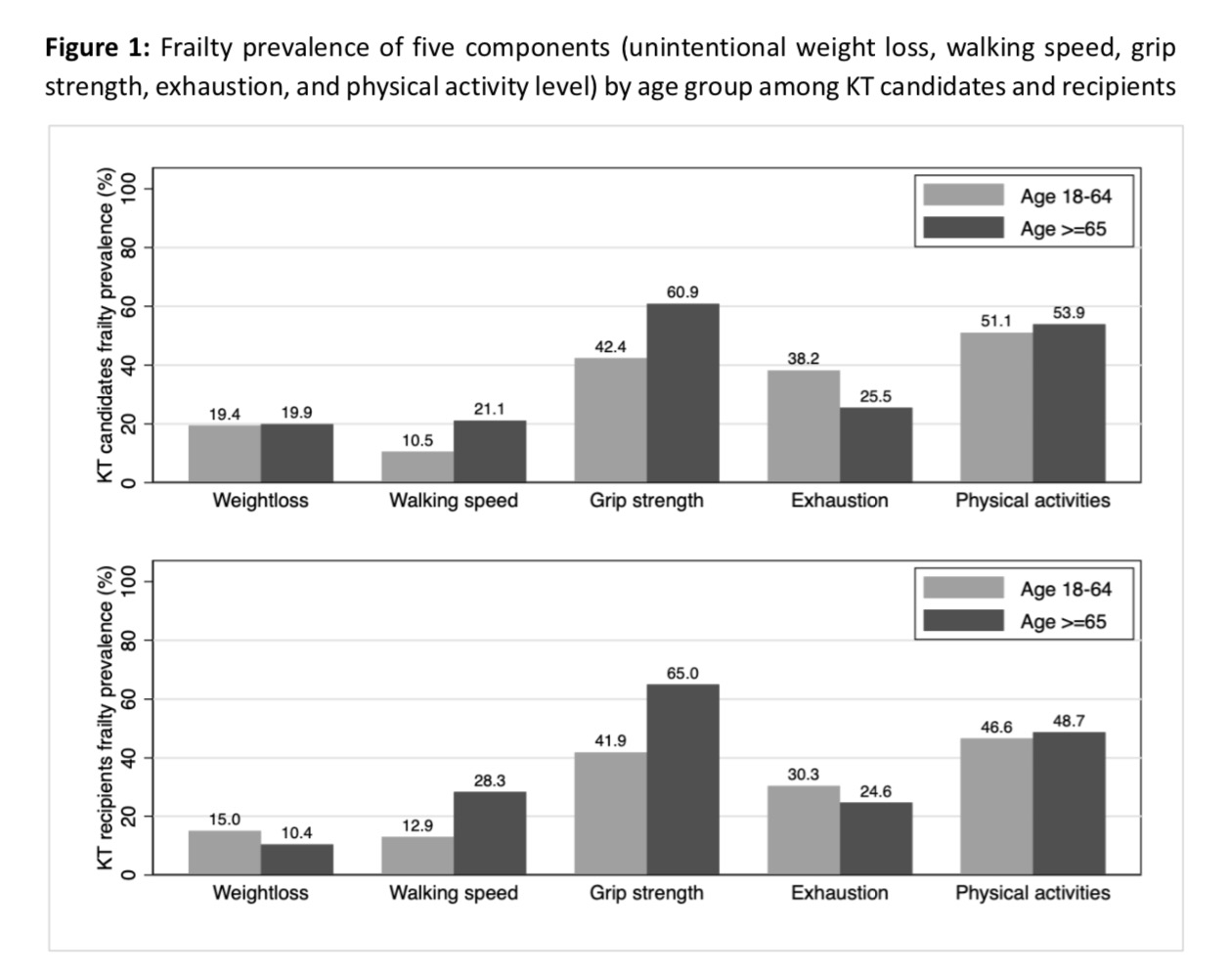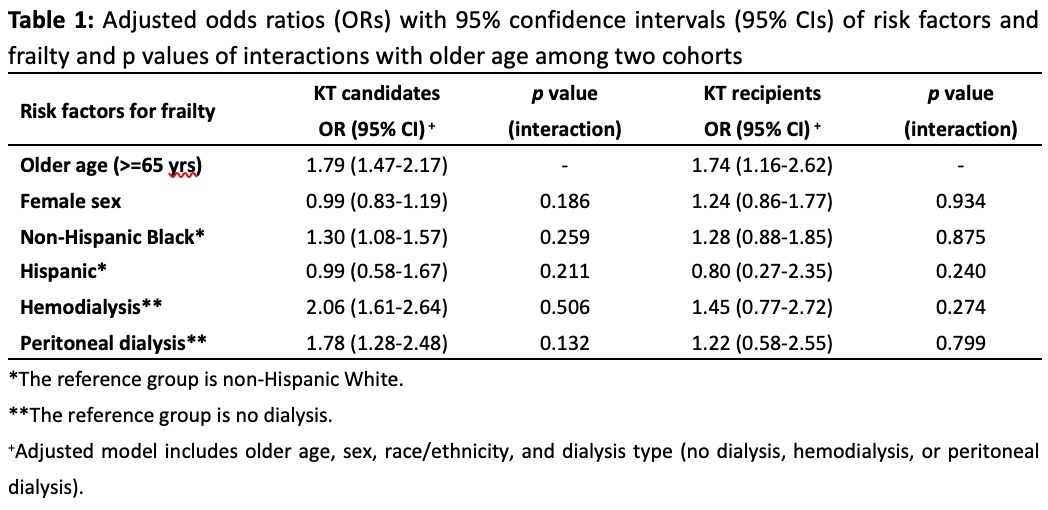Frailty Prevalence among Younger and Older Kidney Transplant Candidates and Recipients
X. Chen1, N. Chu1, J. Walston2, D. Segev1, M. McAdams DeMarco1
1Department of Surgery, Johns Hopkins University School of Medicine, Baltimore, MD, 2Department of Medicine, Johns Hopkins University School of Medicine, Baltimore, MD
Meeting: 2020 American Transplant Congress
Abstract number: 549
Keywords: Age factors, Kidney transplantation, Risk factors
Session Information
Session Time: 3:15pm-4:45pm
 Presentation Time: 3:39pm-3:51pm
Presentation Time: 3:39pm-3:51pm
Location: Virtual
*Purpose: Frailty is associated with decreased access to kidney transplantation and poor post kidney transplant (KT) outcomes. This paper aims to explore the prevalence and risk factors of frailty among younger (18-64) and older (65 and above) adult KT candidates and recipients.
*Methods: A two-center prospective cohort study (2009-2019) consisting of 4304 adult KT candidates and 1396 recipients were leveraged. Fried frailty (unintentional weight loss, walking speed, grip strength, exhaustion, and physical activity level) was measured at evaluation for candidates and at KT admission for recipients. The prevalence of frailty and each component was estimated for older and younger participants. The risk factors for frailty were estimated using adjusted logistic regression. A Wald test was used to test the interactions of risk factors with age group.
*Results: There were 25.9% KT candidates and 21.1% KT recipients aged 65 years or above. The frailty prevalence was 25.4% in older candidates and 18.7% in younger candidates, while the prevalence was lower among recipients (20.8% in the older group, 14.3% in the younger group). Older candidates and recipients were more likely to have slower walking speed and weaker grip strength but less likely to report exhaustion than their younger counterparts; unintentional weight loss and physical activities were similar. Candidates who were older, Non-Hispanic Black and undergoing any dialysis were more likely to be frail; only older age was associated with frailty among KT recipients. Frailty risk factors were similar between older and younger candidates and recipients. No differences were observed in the strength of the associations by age group in either cohort (p > 0.1).
*Conclusions: KT candidates and recipients have a high burden of frailty even at younger ages. Patients with end-stage kidney diseases at all ages should be screened for frailty at evaluation to identify the needs of pre-transplant interventions and at admission for KT to guide post-KT follow-up care.
To cite this abstract in AMA style:
Chen X, Chu N, Walston J, Segev D, DeMarco MMcAdams. Frailty Prevalence among Younger and Older Kidney Transplant Candidates and Recipients [abstract]. Am J Transplant. 2020; 20 (suppl 3). https://atcmeetingabstracts.com/abstract/frailty-prevalence-among-younger-and-older-kidney-transplant-candidates-and-recipients/. Accessed February 23, 2026.« Back to 2020 American Transplant Congress


